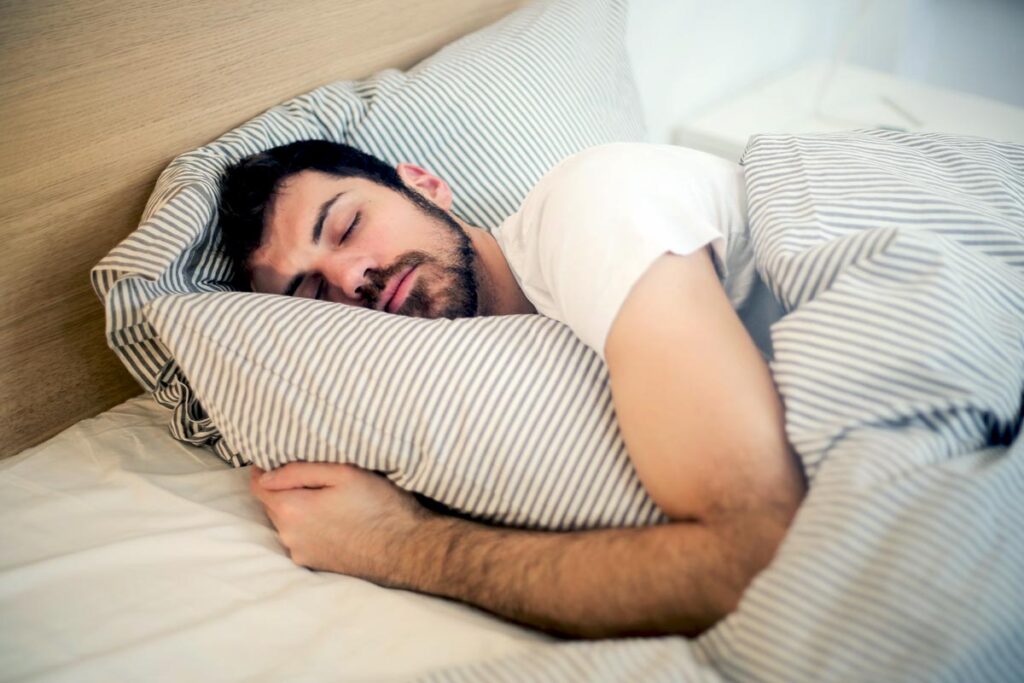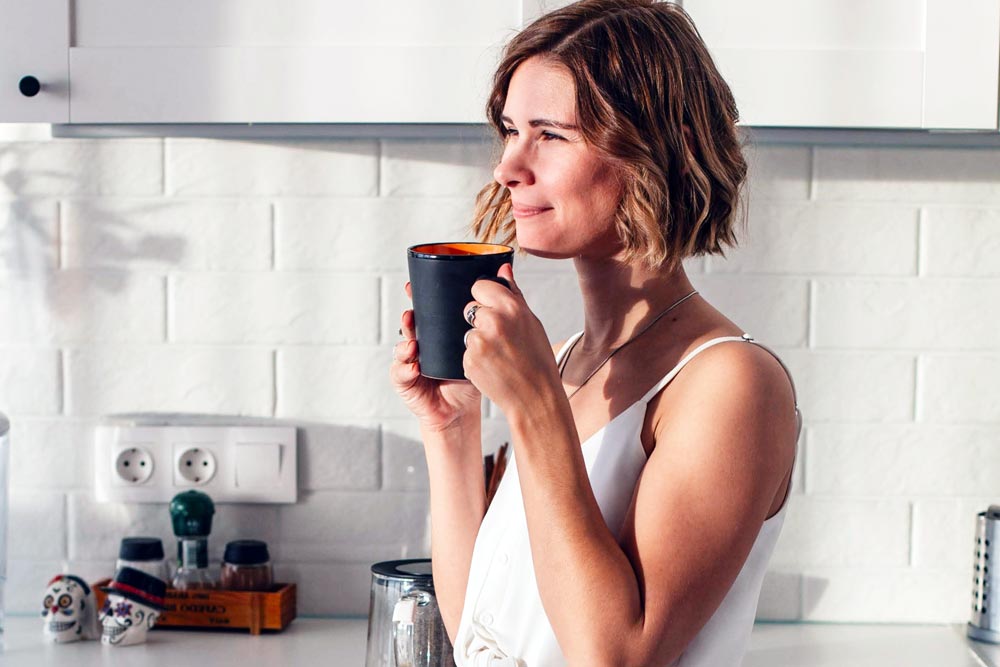We Accept Most Insurance. Please Call to Verify Yours.






![]()







Today, over 40 million adults have a diagnosed anxiety disorder of some kind. At the same time, an estimated 50% of all people with anxiety struggle with sleep. Many experience insomnia, or difficulty getting to sleep. That can have severe repercussions on your mental health, including making insomnia symptoms worse, while causing fatigue, reducing the effect of therapy, and decreasing your quality of life.
While many people struggling with anxiety can qualify for sleeping pills or other sleeping aids, you probably want to try without drugs first. That’s especially true if you’ve had negative experiences with substance abuse, have had an addiction, or are afraid that sleeping pills will require too much management.
While, eventually, it may be necessary for you to use sleeping aids to help you restore your sleeping pattern, you can always try building healthy habits at the same time.
Exercise during the day can help you to sleep at night. Why? Exercise triggers neurotransmitter and hormone production, stimulating blood flow and oxygen. In addition, it tires out your muscles, creating sensations of physical tiredness. While people with physically active jobs don’t have to worry about this too much, anyone with a relatively sedentary job should.
In addition, it’s important to keep in mind that exercise shouldn’t be too late. It’s fine to exercise in the evening, but exercise will generally boost energy levels for about 2-3 hours. So, if you go running or do yoga, do it immediately after dinner, or about 3-4 hours before you plan to sleep. Then, you’ll have a few hours of higher energy, after which fatigue from exercise should help you fall asleep.
Most of us do things all the way up until we fall asleep. That can be a mistake. Instead, it’s better to take 30-60 minutes to wind down. That can mean taking half an hour to walk around and slowly set up your morning clothing, to clean up, etc. It might also mean taking time to meditate. Some people also have success reading, but if you love to read, you may find that backfires and keeps you awake.
The idea here is that you find something to do that helps you relax, without providing too much stimulation. For example, watching television or using your phone will provide blue light stimulation, which can keep you awake. Turning those screens off and doing something around the house or relaxing without for about an hour can actually help you sleep.
Most people are aware that large amounts of caffeine can keep you awake. However, it’s not just caffeine that’s the culprit. Food is an energy source, which means that consuming a large amount of it before bed can keep you awake.
For this reason, science is increasingly pointing to limiting caffeine (tea, soda, coffee, energy drinks), sugar, and high amounts of carbs at night. If you have a lot of trouble sleeping, you might also want to avoid snacking, unless you’re having high protein and low carb snacks (think meat, nuts, protein snacks, etc.). And, you can also try switching the size of dinner and lunch around, so you have your biggest meal in the middle of the day, when you’re most likely to use it.

Bright light works to keep you awake, triggers your body’s circadian rhythms. If you work in a low-light environment, you might find that you’re sleepy during the day. Then, you won’t be able to sleep at night. Switching to using bright lights around your desk or work area or in your home can help you to combat that by staying awake during the day. Then, when you go to bed in a dark space, your body will already know what to do.
How can you increase bright light? While the ideal would be that you spend more time outside, that isn’t always possible. Instead, looking for full spectrum or sun lamps for around your desk may be a good call.

While it’s important that you have bright light during the day, it’s equally important that you have a dark, quiet, and comfortable space to sleep in. Many people use their bedrooms for TV, for phones, and for reading. If you’re having trouble sleeping, you shouldn’t. Your bedroom should be for sleeping.
That may mean removing electronics, taking out screens, and ensuring that you leave your phone on “Do not disturb” or put it down outside of the bedroom. You’ll also want to make sure you have good curtains, that your bedroom is quiet, and that you’re happy and comfortable in your space.
Anxiety management normally means getting therapy and counseling, working out triggers, and learning to mitigate symptoms and feelings of anxiety. Doing so can take years. However, it will be important to work on short-term coping mechanisms as well. For example, some people find that meditating before bed helps. Others want someone to talk to or to share with.
Managing anxiety also means taking steps to minimize what you’re experiencing stress about. With some forms of anxiety, that will be impossible. However, if something is very obviously causing stress, taking time and investing in improving that may help.
Good sleep routines require consistency. That normally means getting up and going to bed at near the same time as often as you can. Here, you’ll want to establish a sleeping rhythm, (e.g., fall asleep at 10 PM and wake up at 6) and then stick to it at least 80% of days. Eventually, a good routine will help you fall asleep, because your body expects to be asleep or awake at that time.
However, you can’t expect routines to have impact for months or even a year after you start doing them. Good and consistent routines will take time to be meaningful, so you may need intermediate help.
Sleeping problems are a major part of anxiety for over 20 million Americans. If you’re struggling to sleep, it will negatively impact every other part of your life, including anxiety treatment. Getting that sleep under control can take time, especially if you’re not using sleeping aids. However, good routines, self-care, and preventive care will help you to improve how you fall asleep, so you can improve your mental health.
If you or a loved one is seeking help for alcohol or other substance abuse, contact us at Stairway Resource Center today. At Stairway Resource Center we provide a 60 to 90-day outpatient program that takes place in an engaging and supportive community setting. We offer dual diagnosis treatment and daily group and individual therapy for our clients, in addition to fun community-based events and activities.

Therapist
Cristina is a bilingual clinical social worker with over 10 years experience working in the field of mental health and addiction, both in the non profit and private sectors. Cristina received a diploma as a certified substance abuse counselor before returning to school to receive a Masters Degree in Social work at USC. Cristina uses a client-centered trauma focused approach in her treatment modalities, blending evidenced based practices such as CBT and EMDR to create an individualized treatment plan to support each client’s unique needs.